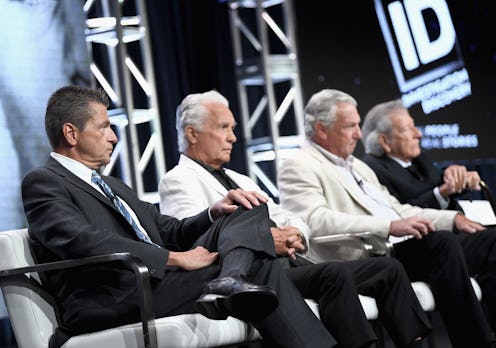
As a State Department alum and business development leader, I speak at conferences all over the world. When my hosts meet me, they're often taken aback. “Sorry for automatically assuming you were a man!” one said recently. My name doesn't offer a lot of gender clues, but that's not the problem. The problem is that people expect me to be a man because the vast majority of keynote speakers and panelists are men.
Women are still losing this fight, which means we need to take more aggressive measures. For example: Why are we just sitting in the audience of a conference during an all-male panel? We should be noisily standing up and, even more noisily, walking out. Imagine the impact if an all-white manel took the stage, and several dozen women and people of color in the audience, plus anyone else who supported them, just got up and walked out.
I’ve heard defenders of manels explain that striving for fair gender and race ratios puts too much of a burden on conference organizers. You know what stresses out a conference organizer more than the difficulty of lining up speakers? A walkout.
"Why are men and women alike so comfortable listening to white men opine?"
Don't get me wrong: Women have made progress. In a compelling 2013 piece in The Atlantic, Rebecca Rosen asked men to refuse to speak on all-male panels, also known as “manels," in an attempt to force the inclusion of more women. Men signed on. In 2013. In 2014. In 2015. In 2016. In 2017. Just... not many of them.
Manels remain an epidemic. One database counted well over 100 this year. The Consumer Electronic Show, the biggest tech convention in the world, had only male keynote speakers. Stanford hosted a history conference where all 30 panelists were male. The Smart Building Conference in Amsterdam had 35 speakers, all male.
There are equally important reasons to walk out of a panel. A mixed gendered but all-white panel is just as problematic. It’s tricky to question whether every white woman should refuse to speak on a panel where there isn’t diverse representation — but white women do need to be at the forefront of pushing for greater diversity. Frances McDormand’s call for inclusion riders, where powerful movie stars demand diversity throughout the entire production team, is as applicable a concept on the speaking circuit as it is on a Hollywood set.
"We're far from the point where men take notice when they are surrounded only by men."
I don’t say all this to belittle the efforts of the groups fighting tirelessly with facts, humor, and shaming. Allmalepanels and allwhitepanels award all-male and all-white panels a David Hasselhoff or Mr. T thumbs up, respectively. Manpanels.org, No thanks, mate, and economist Owen Barder’s website host pledges against speaking at manels. GenderAvenger does both in addition to dispelling myths. There are also projects like Equalister and Mission Visible, in addition to the newer Sourcelist. Each of these groups is proving that the problem isn’t a lack of talent — a favorite excuse for those who think the status quo is fine.
But at this rate, we aren't going to end all-white manels at conferences, on TV, or in hearings in Congress anytime soon. The other day, I was in a meeting in which all the participants were female. Every one of us took notice and commented on it more than once. But we're far from the point where men take notice when they are surrounded only by men.
It’s actually kind of curious. Why don’t men notice the absence of women in a room or on a panel? Why are men and women alike so comfortable listening to white men opine?
To me, it stems from a presumption that men are experts and belong in positions in power. Women comprise only 4.2 percent of the CEOs of Fortune 500 companies but two-thirds of the minimum wage workers in the U.S. Once, an executive hiring an assistant told me in an offhand way that it would feel odd to have a man in the role. “Obviously it should be a woman,” she told me.
It's a vicious cycle. White men have more power and are assumed to be the experts. So they're propelled into situations that give them more power and cement their status as experts. These situations reinforce their authority and the primacy of their voice. It’s no wonder that some men complain that women talk too much or believe that a man’s voice is more trustworthy than a woman’s. They're used to male voices being the ones that matter, have authority, and exude expertise.
We’ve endured manels for too long. I don’t want to be old and grey explaining to a man why a woman needs to be on stage. This should be the year it ends.
See you at the exits.